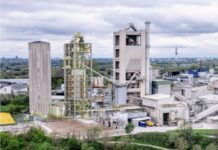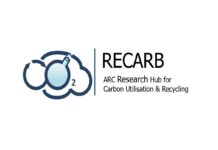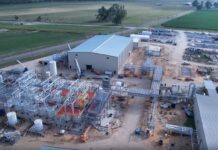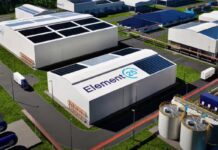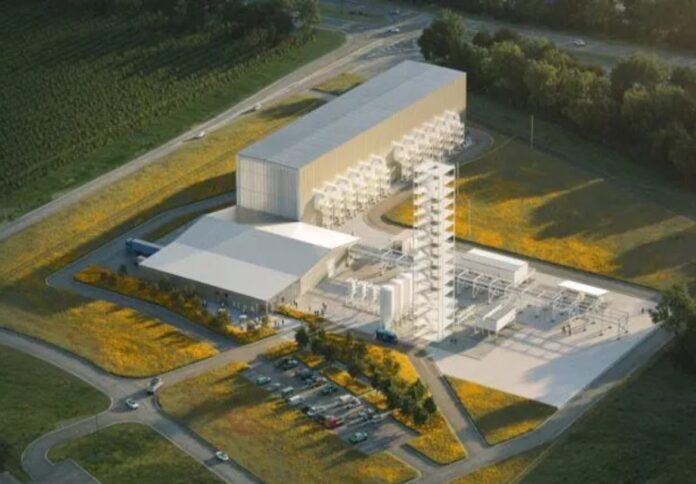
Heirloom, a US Direct Air Capture (DAC) company, announced plans to build two DAC facilities in Shreveport, Louisiana, capable of jointly removing up to 320,000 tons of carbon dioxide from the atmosphere each year.
These facilities will utilise Leilac’s innovative electric calcination and carbon capture technology under a global license agreement, Calix said in a news release.
The first facility, designed to remove approximately 17,000 tons of CO2 annually, is expected to begin operations by 2026.
The second facility, with a capacity to handle around 300,000 tons per year, will be developed in phases, starting with an initial capacity of about 100,000 tons by 2027.
Phil Hodgson, managing director and CEO of Calix, highlighted the significant potential of the DAC market in the global effort to address climate change. ‘
“Heirloom and Leilac’s partnership and complementary technologies deliver an innovative pathway to drive down DAC costs and be at the forefront of this exciting opportunity,” he noted.
Heirloom CEO Shashank Samala expressed excitement about building these new facilities in Northwest Louisiana, citing the economic activity and job creation they will bring to the region.
Samala explained, “Coming shortly after we opened America’s first commercial DAC facility, this expansion in Louisiana continues Heirloom’s strong momentum as we work toward billion-ton scale.”
According to Calix, the partnership between Heirloom and Leilac combines two complementary climate technologies to provide an efficient approach to atmospheric carbon dioxide removal.
Using low-cost limestone, modular and scalable designs, and efficient, renewably powered electric heating, this collaboration aims to deliver a fast and cost-effective path to permanent CO2 removal.
The partnership also aims to accelerate the deployment of renewably powered electric calcination technology for decarbonising hard-to-abate industries such as cement and lime, supporting a transition to sustainable local industries.
Heirloom’s phased scale-up approach is designed to enable technical, engineering, and operational learnings that support cost-effective carbon dioxide removal at scale.
Following the signing of a perpetual global license agreement and a collaboration agreement in October 2023, Leilac and Heirloom have continued to progress the engineering and design of DAC plants using Leilac’s electric calcination and carbon capture technology.
The 300,000-ton-per-year facility is part of Heirloom’s contribution to Project Cypress, a DOE-supported DAC Hub eligible for up to $600 million in government funding.
The State of Louisiana will also contribute up to $10 million in economic incentives for the projects, reflecting bipartisan support for DAC in the state.
Combined, the DAC facilities are expected to create at least 1,000 construction jobs and over 80 permanent jobs.
Furthermore, Heirloom is partnering with CapturePoint, a carbon management company, to store the CO2 captured from these facilities in Class VI underground wells, providing a safe, durable, and permanent storage solution.
The pipeline and storage wells used for Heirloom’s captured CO2 will be dedicated to permanent CO2 storage, and both facilities will be fully powered by additional renewable energy sources.
In addition to significant public funding, Heirloom will finance the remaining capital expenditure for the projects and pay Leilac for associated engineering services.
Once operational, both DAC facilities will be covered by Leilac and Heirloom’s global license agreement, under which Heirloom will pay Leilac a minimum of $3 per ton of CO2 separated by the Leilac technology.



